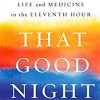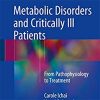The voice of people living with COPD: what I learned from doing qualitative research
blogs.bmj.comAs a general respiratory physician, schooled in the clinical world of evidence-based medicine (EBM), I shared a common view that qualitative research was, well, flaky. Where was the science?
The statistical significance? How could I apply this to my clinical work?
Then, as part of a clinical research project looking at the potential benefits for people with chronic obstructive pulmonary disease (COPD) of participation in a community-based singing group,
I conducted a mixed-methods quantitative/qualitative study. This is what I learned.
I was fortunate to have an experienced qualitative researcher to show me the way and help me to understand the bewildering world of qualitative methodology. Through 12 one-to-one interviews and a focus group discussion, we explored how participating in a community singing group contributed to the health and wellbeing of people living with COPD.
The interviews and focus group were recorded and transcribed, so I then got to use some qualitative research software—QDA miner lite—to manage the data coding of the emerging concepts, themes, and ideas.
But the most important and life-changing thing for me was the privileged insight into the lives of 23 people living with COPD. In contrast to my standard clinical consultation, typified by specific, closed questions such as “how far can you walk?” and “do you have a productive cough?’”, we used open-ended questions such as “what was it like for you?”, “how did being in the group make you feel?” and “how was this different from other community support groups?”
I learned about shame, guilt, sadness, fear, and loneliness.
An unexpected common theme was how much people appreciated “being cared for,” besides more well-recognised human influences such as connectedness, purpose, growth and participation in a meaningful activity.

















